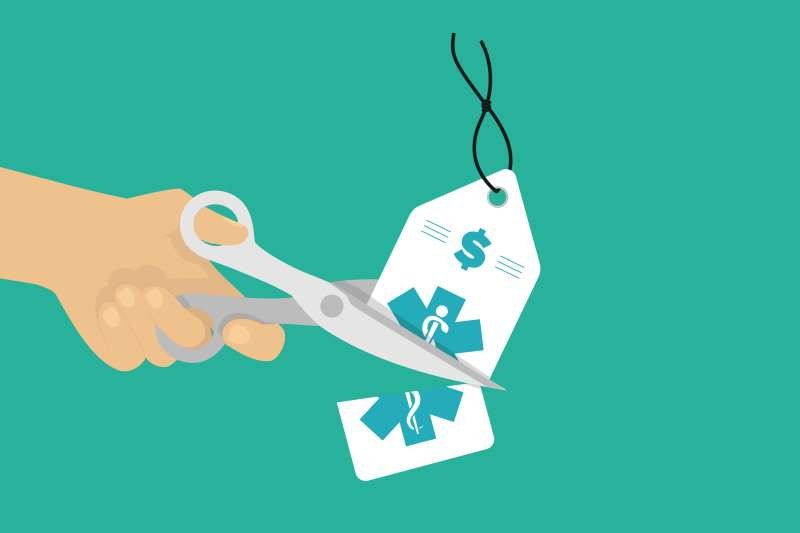Looking to reduce your healthcare expenses? Look no further! In this article, we’ll explore effective strategies on how to save on healthcare expenses. Whether you’re uninsured, underinsured, or simply looking for ways to cut costs, we’ve got you covered. From utilizing preventative care services to comparing prices for medication and procedures, we’ll show you how to navigate the complex world of healthcare expenses and make the most of your hard-earned money. So, let’s dive in and uncover practical ways to save on healthcare expenses without compromising on quality care.
How to Save on Healthcare Expenses
Introduction
Healthcare expenses can often be a burden on individuals and families. With rising costs of medical treatments, medications, and insurance premiums, it’s essential to find ways to save on healthcare expenses without compromising on quality care. In this article, we will explore various strategies and tips to help you reduce your healthcare costs while still receiving the necessary medical attention you need. From understanding your insurance coverage to adopting preventive measures, we’ve got you covered.
1. Understand Your Insurance Coverage
One of the first steps to save on healthcare expenses is to have a thorough understanding of your insurance coverage. Here are some key points to consider:
- Review your insurance policy: Take the time to carefully read and understand your insurance policy. Familiarize yourself with the benefits, coverage limits, deductibles, copayments, and any exclusions.
- Network providers: Use healthcare providers who are in-network with your insurance plan. Out-of-network providers may charge higher fees, resulting in increased out-of-pocket expenses.
- Generic medications: Opt for generic medications whenever possible. They are equally effective as brand-name counterparts but are significantly cheaper.
- Preauthorization: Understand the preauthorization requirements of your insurance plan, especially for costly procedures and treatments. Failing to obtain preauthorization may result in denial of coverage.
2. Take Advantage of Preventive Care
Preventive care plays a crucial role in maintaining good health and avoiding costly medical treatments in the future. Here’s how you can save on healthcare expenses by prioritizing preventive care:
- Regular check-ups: Schedule routine check-ups and screenings as recommended by your healthcare provider. Early detection of health conditions can prevent them from escalating and requiring expensive treatments later on.
- Immunizations: Stay up to date with vaccinations. They can help prevent serious illnesses and reduce the risk of hospitalization, saving you money in the long run.
- Healthy lifestyle: Focus on adopting a healthy lifestyle to minimize the chances of developing chronic conditions like diabetes, heart disease, and obesity. This includes eating a balanced diet, exercising regularly, and avoiding harmful habits like smoking or excessive alcohol consumption.
3. Utilize Telemedicine Services
Telemedicine has gained popularity in recent years, and for a good reason. It offers a convenient and cost-effective way to seek medical advice without physically visiting a doctor’s office. Here’s how telemedicine can help you save:
- Lower consultation fees: Telemedicine consultations often have lower fees compared to in-person visits. This can be particularly beneficial for minor illnesses or follow-up appointments.
- Reduced travel costs: With telemedicine, there is no need to travel long distances to see a specialist or visit the hospital. This eliminates transportation expenses and saves you time.
- Convenience: Telemedicine allows you to consult with a healthcare professional from the comfort of your home. This can be especially valuable for individuals with mobility limitations or those living in remote areas.
4. Shop Around for Medications
Prescription medications can be a significant expense for many individuals. However, there are ways to save on medication costs:
- Comparison shopping: Compare prices of medications at different pharmacies. Prices can vary significantly, and some pharmacies may offer discounts or loyalty programs that can help you save.
- Ask for generics: When your doctor prescribes medication, inquire if there is a generic version available. Generic medications are typically much cheaper and equally effective.
- Mail-order pharmacies: Consider using mail-order pharmacies for long-term medications. They often provide discounts and deliver medications right to your doorstep.
5. Negotiate Medical Bills
Medical bills can be overwhelming, but there is room for negotiation. Here are some tips for negotiating medical bills:
- Review your bill: Carefully review your medical bills and ensure there are no errors or duplicate charges.
- Ask for itemized bills: Request an itemized bill that breaks down the charges. This will help you identify any unnecessary or overpriced items.
- Speak to the billing department: If you are struggling to pay your medical bills, contact the hospital or healthcare provider’s billing department. They may be able to offer you a payment plan or provide financial assistance options.
- Consider medical billing advocates: In complex cases, hiring a medical billing advocate can be beneficial. They specialize in reviewing medical bills, identifying errors, and negotiating on your behalf.
6. Research Low-Cost Clinics and Programs
If you are uninsured or seeking low-cost healthcare options, researching low-cost clinics and programs is essential. Here are a few resources to consider:
- Community health centers: Community health centers offer comprehensive healthcare services on a sliding fee scale, based on income. They provide primary care, preventive care, and referrals to specialized services.
- Government programs: Check if you are eligible for government programs such as Medicaid or the Children’s Health Insurance Program (CHIP). These programs provide low-cost or free healthcare coverage for individuals and families with limited income.
- Prescription assistance programs: Many pharmaceutical companies offer prescription assistance programs for individuals who cannot afford their medications. These programs provide discounted or free medications.
7. Stay Informed and Ask Questions
Being an informed healthcare consumer can help you make decisions that save you money. Don’t hesitate to ask questions about your healthcare options, treatment plans, and costs involved. Some tips to consider:
- Research treatment options: When faced with a medical condition, research different treatment options to understand their costs and potential outcomes. Discuss these options with your doctor to find the most suitable and cost-effective approach.
- Ask for cost estimates: Before undergoing a procedure or treatment, ask your healthcare provider for a cost estimate. This will help you plan and budget accordingly.
- Explore financial assistance programs: Some hospitals and healthcare organizations offer financial assistance programs for individuals who cannot afford their medical expenses. Inquire about these programs to determine if you qualify.
By taking proactive steps and being an informed healthcare consumer, you can significantly reduce your healthcare expenses. Understanding your insurance coverage, prioritizing preventive care, utilizing telemedicine services, shopping around for medications, negotiating medical bills, researching low-cost clinics and programs, and staying informed are key strategies to save on healthcare expenses. Remember, your health should never be compromised, but with careful planning and smart choices, you can achieve both affordable healthcare and quality care.
7 Ways to Save on Health Care Costs
Frequently Asked Questions
Frequently Asked Questions (FAQs)
How can I save on healthcare expenses?
There are several ways you can save on healthcare expenses:
Can I negotiate medical bills?
Yes, you can negotiate medical bills with healthcare providers. It’s worth reaching out to discuss payment options or potential discounts.
Are there any free or low-cost healthcare options available?
Yes, there are free or low-cost healthcare options available, such as community health clinics, government-sponsored programs, and charitable organizations. Research these options in your area.
What is a health savings account (HSA) and how can it help me save on healthcare expenses?
A health savings account (HSA) is a tax-advantaged savings account specifically for medical expenses. It allows you to set aside pre-tax money to cover qualified medical expenses, reducing your overall healthcare costs.
How can I find cheaper prescription medications?
To find cheaper prescription medications, you can compare prices at different pharmacies, explore generic alternatives, or ask your doctor about lower-cost options. Some discount programs and online pharmacies also offer savings on medications.
What preventive measures can I take to avoid costly medical treatments?
Preventive measures include maintaining a healthy lifestyle, getting regular check-ups, and following recommended screenings and vaccinations. Taking care of your health can potentially prevent the need for costly medical treatments.
Does my insurance plan cover all necessary medical services?
Insurance coverage varies, so it’s important to review your policy and understand what medical services are covered. Some services may have limitations or require pre-authorization, so it’s helpful to be aware of these details.
Are there any government assistance programs available to help with healthcare costs?
Yes, there are government assistance programs like Medicaid and the Children’s Health Insurance Program (CHIP) that provide coverage for eligible individuals and families with limited income. Research these programs to determine if you qualify.
Can I save on healthcare expenses by using telemedicine or virtual healthcare services?
Yes, telemedicine or virtual healthcare services can provide cost savings by eliminating the need for in-person visits. These services can often be more affordable and convenient, particularly for minor health concerns or follow-up appointments.
Final Thoughts
In conclusion, saving on healthcare expenses is a crucial aspect of financial planning. By taking proactive measures, individuals can effectively manage their healthcare costs. Researching and comparing healthcare providers, utilizing preventive care, and exploring alternative treatment options are key strategies. Additionally, maintaining a healthy lifestyle, regularly reviewing insurance plans, and negotiating medical bills can significantly reduce healthcare expenses. By being proactive and informed, individuals can take control of their healthcare costs and ensure financial stability. Saving on healthcare expenses is possible with careful planning and proactive decision-making.



